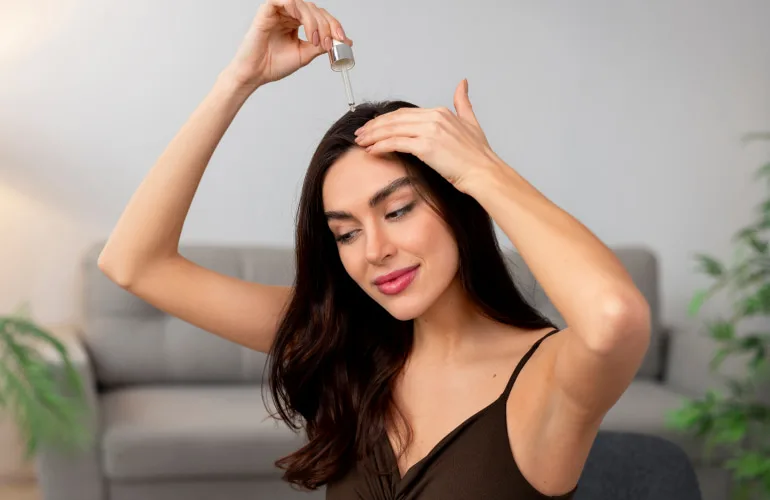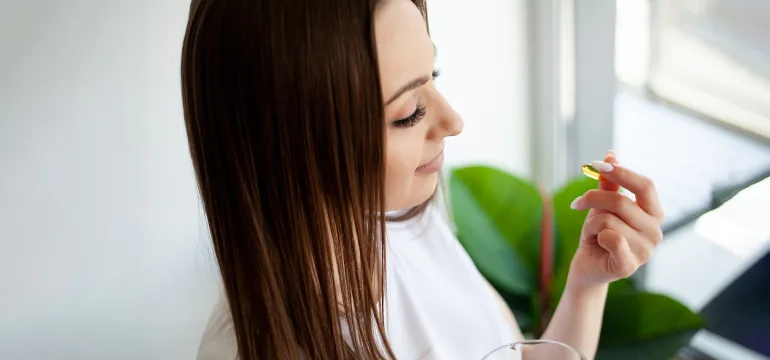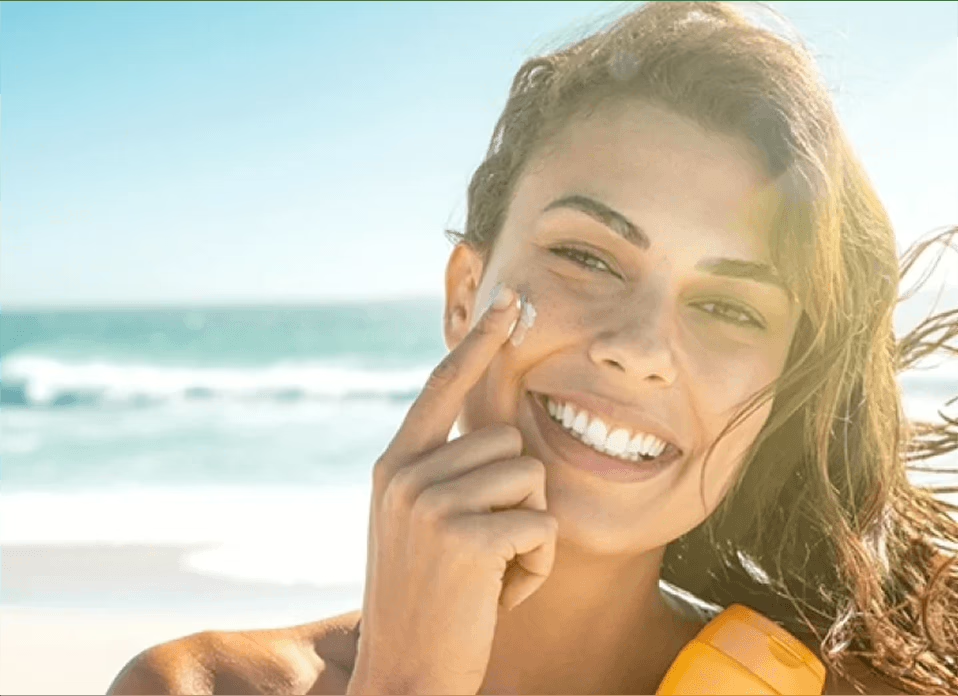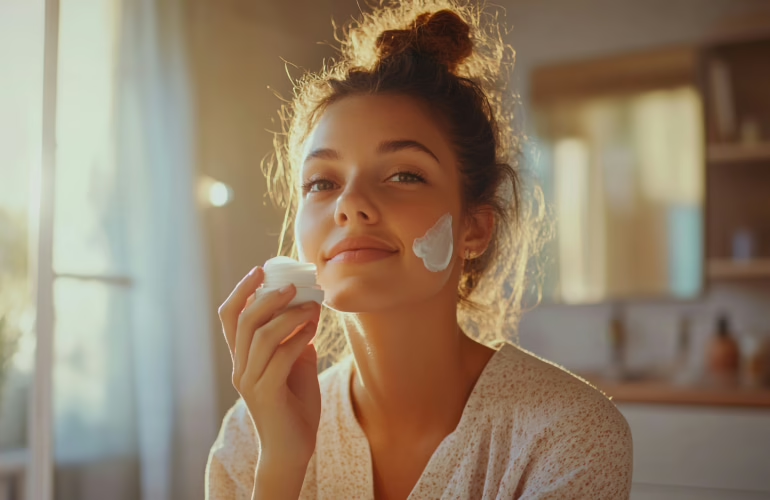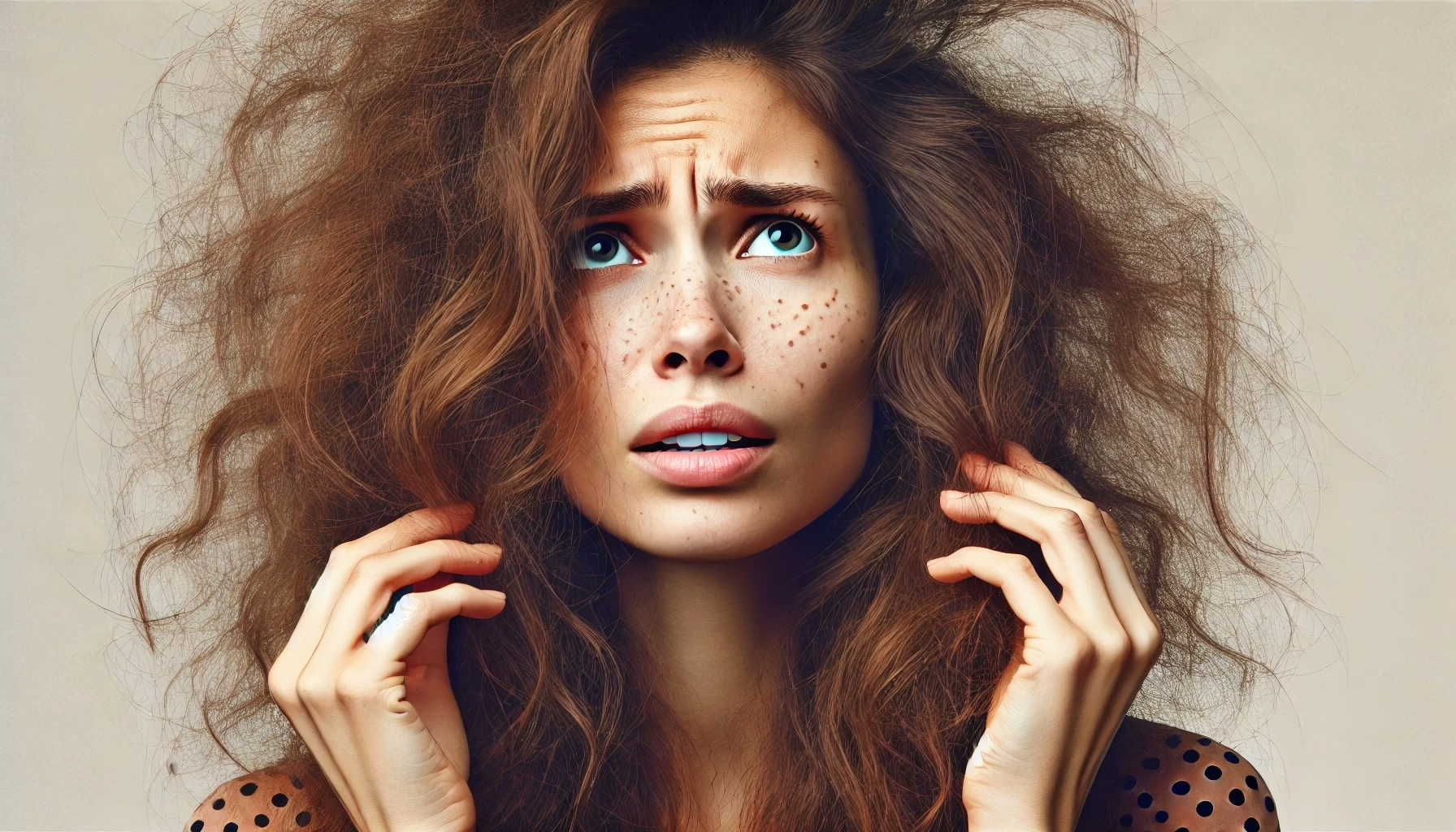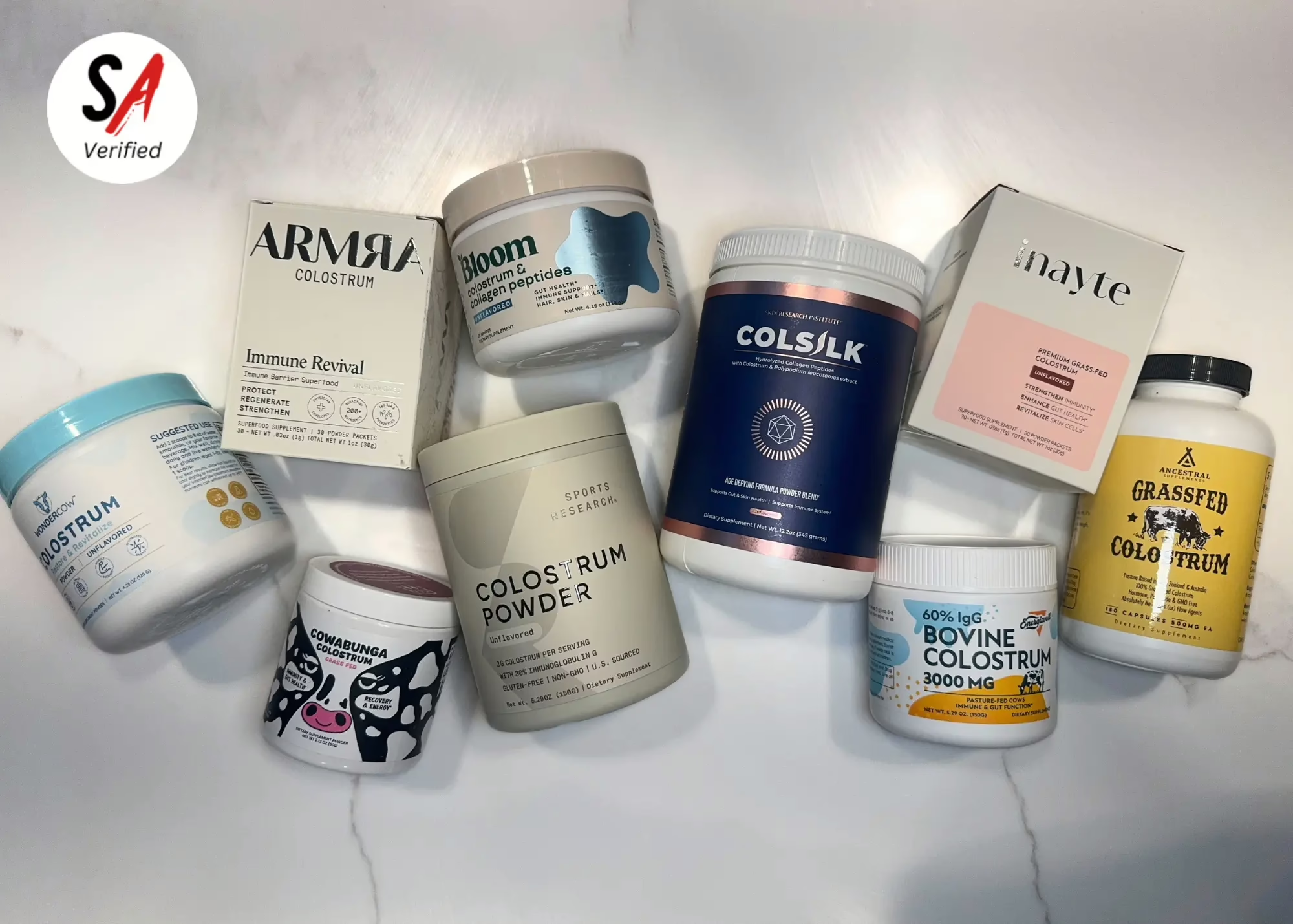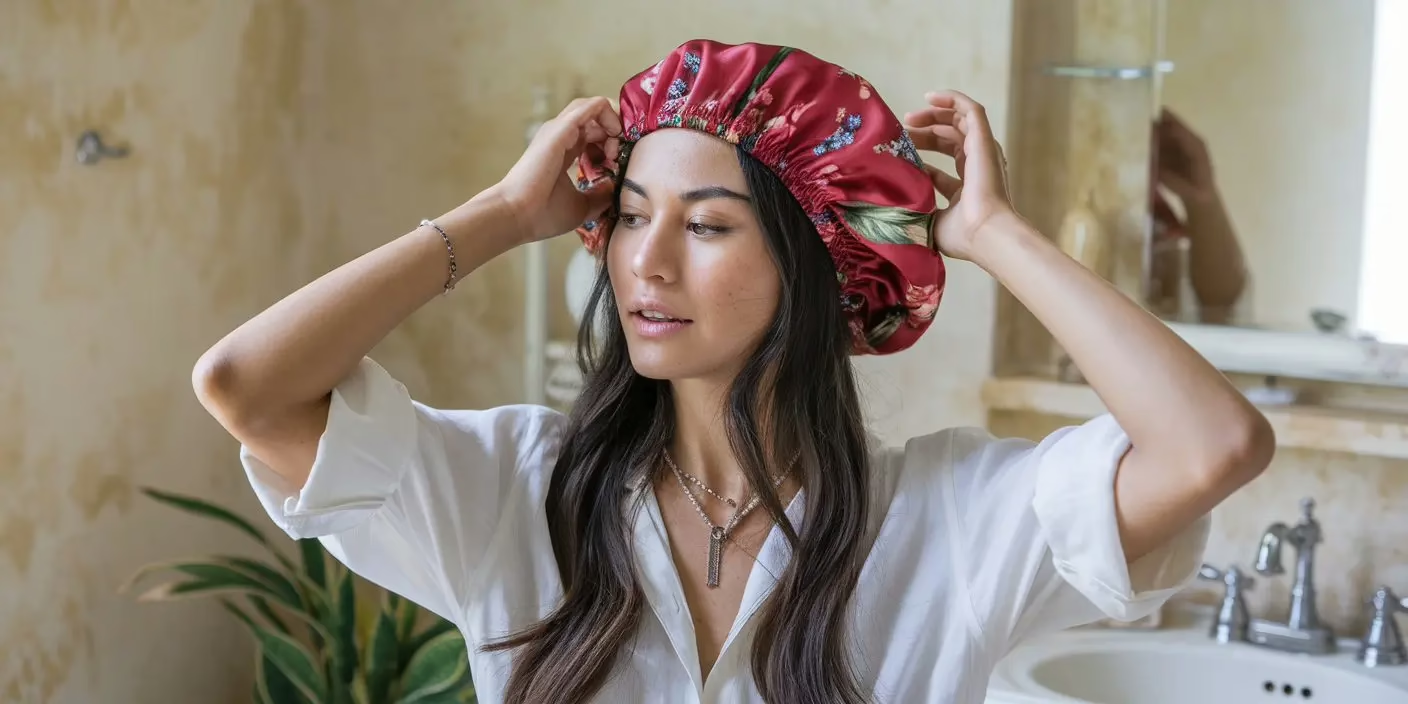Advertising Disclosure
Exploring the Impact of Vitamins on Hair Growth
For many women (and not only), the beauty of hair plays a vital role. Since ancient times, hair has been valued most of all in women’s beauty. Even now, in Muslim countries, after marriage, women cover their heads with a headscarf so that only their husbands can enjoy the beauty of their hair. Unfortunately, the environment, improper diet, and improper care affect this beauty in many ways.
But do not be upset because we live in the 21st century. This means that there are many options to improve the quality of your hair. Of course, there are expensive treatments that will improve the quality. However, don’t panic if you haven’t saved up the money for such a procedure. There are cheaper means that can also affect the beauty of your hair. Of course, we are talking about various vitamins that affect your skin and hair quality and, in general, have a positive effect on the body. But which vitamin is good for hair growth? That’s what we’re going to look into now!
First, it should be said that there are many vitamins. And each of them, in one way or another, affects the growth and quality of hair. It is important to recognize that there are vitamins in food and vitamins in supplements. If the first ones are not enough, you start taking additional vitamins.
Key Vitamins Essential for Hair Health
Understanding which vitamins are good for hair is crucial for maintaining healthy hair and a nourished scalp. Several vital vitamins improve the growth cycle and health. Here are they:
| Vitamin group | Description |
| A | This is vital for cell growth, including hair cells. It helps produce sebum. This oily substance moisturizes the scalp. It keeps hair healthy. Too much vitamin A can lead to hair loss. A balanced intake is necessary. |
| B | Biotin is one of the best vitamins for promoting faster hair growth and strengthening hair. It improves its texture and growth rate. B12 carries nutrients to the scalp and hair follicles, promoting healthy growth. |
| C | This is a powerful antioxidant. It protects hair from damage. Free radicals cause it. Vitamin C also helps the body absorb iron, a mineral essential for hair growth. It is essential for collagen production. Vitamin C strengthens hair strands. It also prevents breakage. |
| D | The “sunshine vitamin” is generally linked to hair follicle health. A deficiency leads to its thinning and loss. Ensuring adequate levels can help stimulate hair follicles. It also promotes new hair growth. |
| E | This is an antioxidant. It protects hair from oxidative stress. Vitamin E improves blood circulation in the scalp, which encourages healthy hair growth. It maintains the natural moisture balance of the scalp. This vitamin prevents dryness and dandruff. |
Incorporate these essential vitamins into your diet routine. They maintain optimal hair health and promote growth. Understanding which vitamins promote hair growth will help you tailor your nutritional intake effectively. Ensure a balanced intake of vitamins to provide your hair with the necessary nutrients. Your hair will stay strong and resilient. This proactive approach supports hair growth and enhances its quality. This ensures your hair remains healthy and vibrant for the long term.
The Role of Vitamin A in Sebum Production
Vitamin A promotes the production of sebum, a natural oil that conditions the scalp and supports healthy hair. Sebaceous glands near hair follicles produce sebum, which acts as a natural moisturizer. Sebum keeps the scalp hydrated and prevents hair from becoming dry and brittle. This is essential for maintaining its health and promoting growth. Vitamin A has main contributions to sebum production. Let’s discuss its role:
- Stimulates sebaceous glands: The vitamin A for hair growth activates them. It encourages sebum production. This natural oil coats the scalp and hair. It provides moisture and prevents dryness.
- Prevents hair breakage: Vitamins help maintain their natural moisture balance. It ensures adequate sebum production. This supplement reduces the risk of breakage and split ends.
- Promotes a healthy scalp environment: Sebum is a barrier against environmental damage and infections. It keeps the scalp healthy. Sebum supports optimal conditions for hair growth.
- Enhances hair texture: Adequate sebum production produces shinier hair. It significantly improves their texture and appearance. Sebum is a natural oil. Sebaceous glands produce it. They coat each hair strand. It provides essential moisture. Sebum prevents dryness and frizz. This results in hair that looks healthier. They feel softer and more manageable. Maintaining proper sebum levels will help your hair remain vibrant, glossy, and well-nourished.
It’s important to maintain a balanced intake of vitamin A, as excessive consumption can lead to vitamin A toxicity. Excessive vitamin A can cause dry, peeling skin and eventually lead to hair loss. You should incorporate this nutrient into your diet moderately. In the quest for the best hair vitamins for women, it’s essential to include it. You must maintain a balanced intake. It will help you achieve healthy, vibrant hair. You will avoid the risk of adverse effects.
B-Vitamins and Their Direct Impact on Hair Growth
Biotin (B7) and B12 maintain healthy hair. Their lack leads to their loss and weakening of structure. Let’s explore their primary roles in hair health. Here are they:
- Biotin (B7): This is the “hair growth vitamin.” Biotin is fundamental for keratin production. A protein makes up the hair. Its deficiency leads to hair thinning and loss. This supplementation strengthens hair and improves its texture. Let’s discuss the latest research about vitamin A for hair growth. Individuals with biotin deficiencies received supplements. They face significant improvements in their health. Also, individuals have reduced hair loss.
- Vitamin B12: This supplement stimulates the red blood cell production. It ensures adequate oxygen delivery to the scalp and hair follicles. Insufficient B12 levels can result in hair loss. Also, they cause poor growth. Supplementing with B12 can enhance hair health. Studies generally show this. They link adequate B12 levels to reduced hair shedding and increased strength.
Here’s some evidence from studies about vitamin B and hair growth. Check it out:
- International Journal of Trichology: Study highlighted the positive effects of biotin supplementation. It helps individuals with hair loss. Participants received biotin supplements. After several months, they showed significant improvements. They improve hair growth and quality.
- Journal of Clinical and Aesthetic Dermatology: This study tested women with thinning hair. They benefited from taking biotin. Women note increased hair volume and thickness.
- Journal of the American Academy of Dermatology: This study involved people with chronic hair loss. It showed that B12 deficiency is common among them. Supplementing with it helped reverse hair loss. Also, it improves hair health in these individuals.
These studies underscore the importance of vitamin B for hair growth. Individuals should ensure adequate intake of biotin and B12. So they can promote stronger, healthier hair. Individuals will reduce the risk of their loss. Incorporate these vitamins into a balanced diet or supplements. It can substantially benefit hair growth and scalp health.
Scientific Evidence Supporting Vitamin Efficacy
Numerous clinical studies have shown that nutrient effectiveness promotes hair’s growth. Also, vitamins are essential for hair loss. Some studies highlight the importance of different groups in maintaining hair health and protecting hair follicles from damage. Check out the crucial studies:
- Vitamin A: Research published in the Journal of Dermatology emphasizes its role in cell growth. It includes hair cells. Adequate levels of Vitamin A help produce sebum. This is an oily substance. It conditions the scalp. It prevents hair from becoming dry and brittle. The study also warns that excessive intake of Vitamin A can lead to hair loss. It indicates the need for balanced consumption.
- B-group (Biotin, B12): We will discuss the study in the International Journal of Trichology. It found that biotin is one of the vitamins for hair loss. Also, it significantly improves hair growth. This happens in individuals with deficiencies. Let’s compare it with another Journal of Clinical and Aesthetic Dermatology study. It reported that women experiencing hair thinning showed increased volume and thickness. This happens after taking biotin supplements. They increase the production of red blood cells. Such vitamins ensure sufficient oxygen delivery to hair follicles. This vitamin promotes healthy growth. Also, it prevents hair loss.
- Vitamin C: The Journal of Investigative Dermatology published findings on this supplement. It has antioxidant properties. This vitamin protects hair follicles from oxidative stress. This defense prevents damage to follicles. It reduces loss and promotes the growth of healthier hair.
- Vitamin D: This creates new hair follicles. Individuals with its deficiencies have thinning and loss of hair. This is according to research in the Journal of Dermatological Science. Supplementation improves their growth and density.
- Vitamin E: This vitamin supplement improves hair growth in participants experiencing hair loss. A study in the Tropical Life Sciences Research journal demonstrated it. The vitamin’s antioxidant properties protect hair follicles from free radical damage. They ensure healthier and stronger hair.
Do vitamins help hair grow? The scientific evidence strongly supports their integration into daily nutrition. All vitamin groups increase hair growth. They also protect hair follicles from damage. These features make vitamins essential for maintaining vibrant hair.
How to Incorporate Essential Vitamins into Your Diet
This step maintains healthy hair. Also, it prevents its loss. Here are practical dietary tips and daily meal plans. They will help increase your intake of hair-healthy vitamins through natural food sources. Check out our practical nutritional tips:
| Vitamin group | Dietary tips |
| A | Sweet potatoes, carrots, spinach, and kale. These vegetables are rich in beta-carotene. The body converts it into Vitamin A. |
| B (Biotin, B12) | Eggs, nuts, seeds, whole grains, and leafy greens. These foods are excellent sources of biotin and Vitamin B12. |
| C | Oranges, lemons, strawberries, bell peppers, and broccoli. These foods contain Vitamin C. It promotes scalp health. |
| D | Ensure sunlight exposure. Also, you should include salmon, mackerel, and mushrooms. Add more fortified dairy products to your diet. |
| E | Nuts (almonds, sunflower seeds), seeds, spinach, and avocados. Add them to your meals. |
We prepared some dietary information. Here is it:
- Vegetarian: Consider replacing grilled chicken with tofu or chickpeas in salads. Ensure fortified dairy or plant-based milk for Vitamin D.
- Vegan: You should use plant-based milk fortified with Vitamin D and B12. Rely on various nuts, seeds, and leafy greens for other vitamins.
- Gluten-Free: You must include these vitamins in your diet. Then, you will significantly improve the condition of your hair.
Add these essential vitamins into your diet. It can significantly impact your hair’s health and growth. You must know the best vitamins for damaged hair. So you can ensure your hair remains shiny and resilient.
Supplementing Your Diet for Optimal Hair Health
Prudent use is crucial to avoid side effects. Let’s explore key aspects:
- Benefits: High-quality supplements provide essential nutrients. They grant biotin, vitamins B, C, D, and E. Such supplements support hair growth and scalp health. They can fill gaps in your diet. This is vital if dietary restrictions or deficiencies affect hair health.
- Potential Risks: These are possible with excessive consumption of specific vitamins. Excess group A leads to hair loss. Biotin supplements may interact with medications. They interfere with laboratory tests. It is advisable to consult a medical professional.
Check out the guidelines. Do it when choosing the best hair vitamins for women. Here is it:
- Quality: You must look for supplements from reputable brands. They must have third-party testing for purity and potency.
- Ingredients: It is essential to check the label for active ones and their concentrations. Ensure they meet your needs.
- Reviews: You must read feedback and seek recommendations. They must be from healthcare professionals or trusted sources.
- Dosage: You should follow the recommended ones. Do it unless otherwise advised by a healthcare provider.
Start with lower doses. Gauge tolerance and gradually increase it if you need to. Also, you should monitor for any adverse reactions. Discontinue use if you experience side effects. They are digestive upset or allergic reactions. Add the best vitamins for damaged hair in your diet. They will complement a healthy lifestyle. Such vitamins make hair more robust and elastic. Always consult your doctor. Do it before starting any new supplements. This step is especially vital if you have health problems. Subscribe to our newsletter. We will help you to know the latest trends. Contact us for more information.
